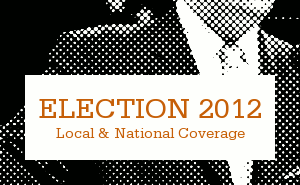In order to assess fines on drivers who run red lights, some traffic lights in Pittsburgh may be equipped with cameras in the near future.
Under a bill in the Pennsylvania House of Representatives, Pittsburgh and several other Pennsylvania cities would have the option of installing the so-called red light cameras. Philadelphia has been running a camera program since 2005.
Representative Paul Costa (D-Turtle Creek) introduced the bill in February. At a Pittsburgh City Council hearing Tuesday, Costa said red light cameras help to prevent "t-bone" crashes at busy intersections, and raise revenue by issuing $100 tickets.
Costa said critics of the legislation dismiss it as "just a money-maker."
"I'm not going to deny that it does make money. Philadelphia, since its inception in 2005, has contributed almost $10 million to the Commonwealth that the Commonwealth has turned around and distributed to other municipalities," said Costa. "But the bottom line is, it saves lives."
The U.S. Department of Transportation supports red light cameras as a safety measure, according to Richard Retting of Sam Schwartz Engineering.
"They studied red light camera programs in seven U.S. cities, and found that overall, right-angle crashes decreased by about 25%," Retting told City Council. "In that same study, they found that rear-end crashes increased 15%, but because the types of crashes prevented by red light cameras tend to be more severe and costly than rear-end crashes, the study found a positive overall societal benefit of about $14 million."
The legislation requires cities that install red light cameras to send most of the revenue to the Pennsylvania Department of Transportation, said Chris Vogler of the Philadelphia Parking Authority.
"The revenue, after the cost of the program is paid, gets sent to PennDOT," said Vogler. "The City of Philadelphia does not keep it. The Philadelphia Parking Authority does not keep it. After costs are paid, quarterly checks are sent up to the Motor License Fund at PennDOT."
Vogler said citations aren't sent out automatically after a picture is taken.
"Before a violation is sent out in our program, the Philadelphia Parking Authority has to look at it twice, and the Philadelphia Police Department has to look at it once," said Vogler. "The checks and balances, and the levels of the process from when that camera activates to when that violation is sent out is pretty substantial."
The red light camera bill has the support of Pittsburgh Councilman Patrick Dowd.
"I'm sure we could find a way to dump [the revenue] right back into the Traffic Bureau and the Pittsburgh Bureau of Police to provide people on the street, to provide safety training," said Dowd.
The bill would give the option of red light cameras to Pittsburgh, Scranton, and more than fifty third-class cities across the state.





